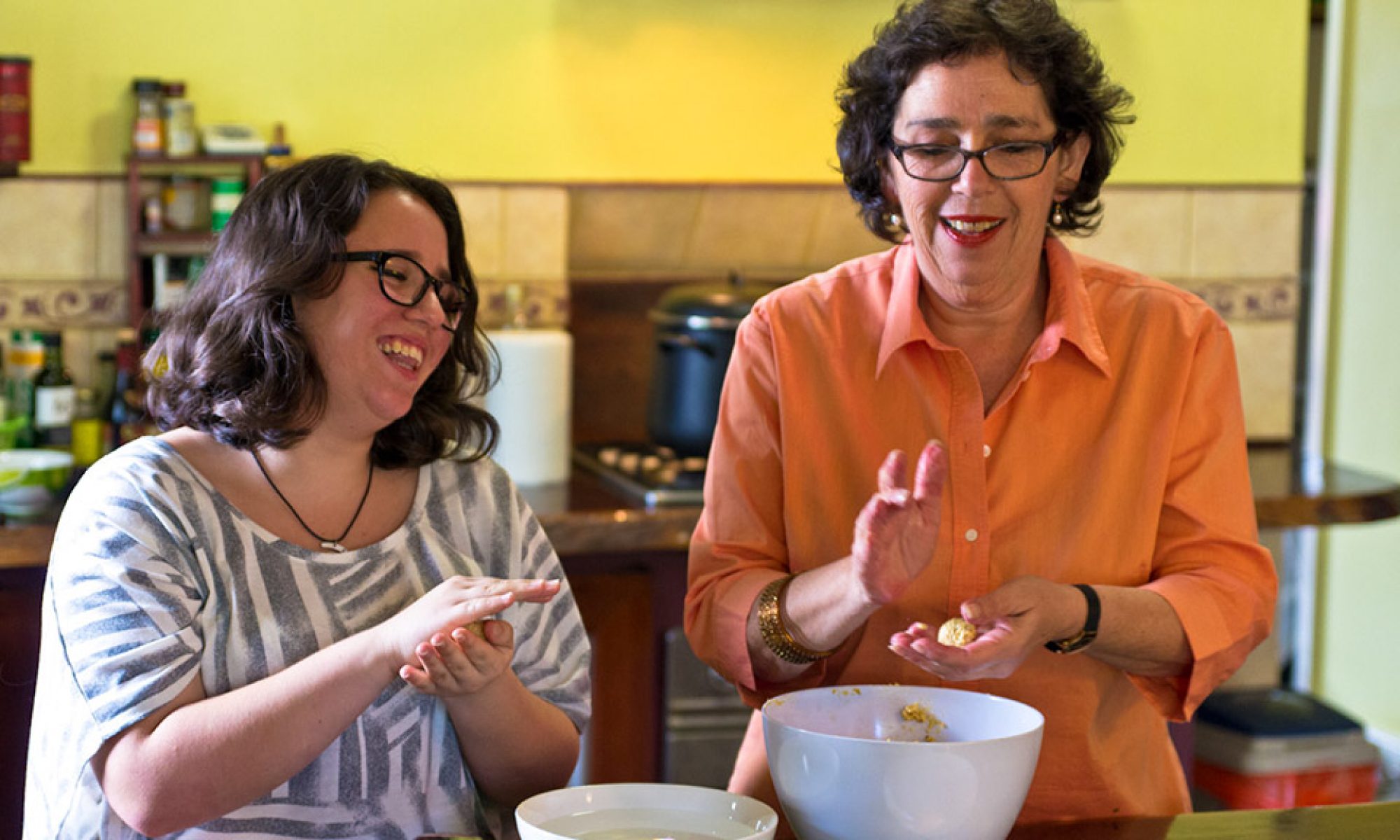Last week I gave a talk for a group of senior Jewish women on the topic of Jewish food and Jewish mothers. I like to think we can consider the Jewish mother as a symbolic mother, not because Jewish mothers are any better, or any worse, than any other group of mothers. It’s a question of perception – Jewish mothers have had more publicity, not all of it good.
People often ask me why Jews take their faith from their mother’s not their fathers. I used to think it was suspicion of women’s fidelity then I discovered it had more to do with the way Jewish women provide their children with the cultural and spiritual tools to be Jewish, in other words, their identity.
Surely this can also be extended to women in general? For example when it comes to speaking a second language children will learn their mother’s language but not the father’s – unless both parents have the same language of course.
The ladies wanted to hear me eulogising the uber-nurturing Jewish mother. They wanted talk of chicken soup and dedication. Certainly this is the image we know to be the “yiddishe mother”. However what I wanted to talk to them about the way that image changed over time.
The Jewish mother emerged at the end of the 19th century. In the Jewish villages of Europe men’s lives revolved around the Synagogue and study while women took care of all the worldly details, small matters like money, education and feeding the family. If we examine other “traditional” cultures we come to understand that this behaviour is common.
The Jewish women of Eastern Europe became the bridge between Jewish and host communities and these everyday skills meant that they adapted to life in the New World better than men whose religious education was no longer valued.
And somewhere between Minsk and Manhatten (or Melbourne) she went from being an angelic, long suffering mother always offering food of course, always leaving the lamp lit in case her wayward son might return, to some sort of obsessive force–feeding banshee. The Yiddish films of the early 20th century show them as dear old ladies obsessively loved by their bad boy sons.
By the time we get to the 60s and 70s writers like Phillip Roth and filmmakers like Woody Allen in particular, provided hideous portraits loosely based on their own mothers. What went wrong?
Were these women the victims of their own success? American Jewish women were well educated but expected to remain at home once married, providing the source of Betty Friedan’s Feminine Mystique. The result was feminism and perhaps her sons resented the shift in focus.
Universal indeed – today we women go freely into the workforce, but when it comes to chicken soup and compassion, not much has changed, we’re always on call. Yes, we are all Jewish mothers.
Dr Felicity Newman is a member of the Centre for Everyday life at Murdoch University

